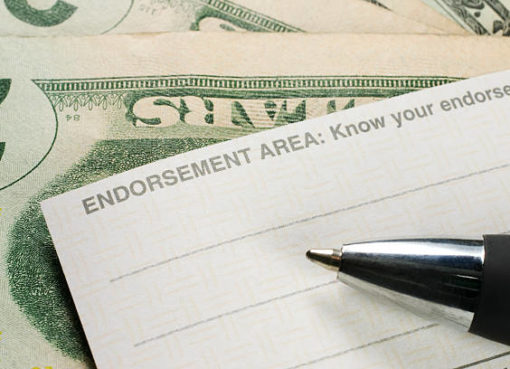How does dental insurance work?
Dental insurance can help reduce the cost of dental care that you would have to pay for out of pocket if you didn’t have the plan. This is how most dental plans work:
- You pay a premium. This is usually a monthly amount you pay for dental insurance. If you get dental coverage through an employer it may be deducted from your pay. If you buy a plan on your own, you pay the monthly cost directly to the insurer.
- There could be a waiting period. This means you may have to wait up to 6 months before you are covered for dental care beyond preventive oral exams.
- You may need a primary dentist. Some types of dental insurance coverage may require you to choose a primary dentist. This is the dentist you will go to for any problems and who will coordinate any specialized dental care you may need.
- In-network or out of network? Depending on the plan you get, you may or may not be required to visit dentists within the plan’s network.
- Frequency and limitations are important. These dental coverage terms tell you what you do or do not have coverage for. For example, you can get a free dental exam and cleaning once every 6 months. And you may be covered for only a limited number of different types of dental care and treatment, from basic to major.
- Your dental insurance may have one or more deductibles. A deductible is the amount of money you must pay out of pocket for dental care before your plan starts sharing those costs.
- Other costs are associated with your plan. When you’ve met the dental deductible, you and your plan begin sharing a percentage of the cost of your dental care. This is called coinsurance. Your dental insurance may also have an annual maximum. This is the most your plan will pay for dental care in a plan year. After that, you will pay the additional costs of care. Some plans also require you to pay a small fee at the time of the dental visit. This is called a copay.
- Preventive dental care is usually free of charge. This means you can have an oral exam every 6 months, in addition to certain types of routine x-rays. Children may receive more routine care as part of their preventive care. This is at no cost to you as part of your dental insurance when you choose a plan that includes preventive care at no costs.
- Dental insurance coverage is divided into certain types of dental care, for example preventive, restorative, orthodontic, etc. Depending on the type of dental plan you choose, you may have more or less coverage for certain types of dental care. That’s why it’s important to plan ahead for the type of dental care you and your family might need. For example, if you think you’ll need only preventive dental care, a basic dental plan that covers mostly preventive dental care may be enough. If you think you’ll need things like crowns, root canals, bridges, implants, etc., then a dental plan that covers more specialized dental care and treatments might be better for you. A dental insurance coverage full may cost you more in monthly premiums, but it will also help you control your out-of-pocket costs for expensive dental procedures.
How can you apply for dental insurance?
There are several ways to get dental insurance:
- Your employer may offer you dental coverage as part of your employment benefits. If so, you can apply during annual open enrollment. There may be different types of dental plans to choose from that can help you cover the type of dental care you think you’ll need.
- If your employer doesn’t offer dental insurance, or if you lose your job or become self-employed, you can purchase a dental plan on your own. You can do this through a state health insurance exchange or directly with a health insurance company like Cigna.
What does dental insurance cover?
What your dental insurance covers depends on the plan you choose. Here are the types of coverage you might consider when shopping for a dental plan:
- Preventive dental care: Most dental plans cover you for certain preventive care at a $0 cost. This usually includes a dental cleaning and exam every six months, as well as certain types of oral x-rays. It could also include coverage for sealants, fluoride, and other things for children.
- Restorative Care: This includes everything from fillings for cavities and tooth extractions, to root canals, crowns, bridges, dentures, and more. These types of treatments can range from basic to major. The more complex and specialized your dental care is, the more expensive it could be. If you think you’ll need dental care that goes beyond preventive dental exams, you may want to explore dental plans that offer more coverage for restorative services like these.
- Orthodontic care: This area of dental specialization focuses on correcting the alignment of the teeth and the bite. If you think you or a member of your family might need this type of dental care, look into dental insurance that includes coverage for orthodontic services.
What is not covered by dental insurance?
This depends on the type of dental insurance plan you choose. For example, dental services like bridges, crowns, dentures, and root canals might not be covered if you only buy a preventive dental plan. Here are some types of dental treatment that may not be covered:
- Any aesthetic treatment, such as veneers and teeth whitening.
- Orthodontic appliances such as dental appliances, retainers, or removable dental aligners may not be included in all types of dental plans. If you’re looking for dental insurance with orthodontic benefits, make sure you understand the details of any plan you’re considering. For example, there could be differences in coverage for orthodontic services compared to coverage for actual orthodontic appliances, such as dental appliances or retainers.
The key to making sure your dental plan covers certain types of treatment is to plan ahead for the dental care you and your family think you’ll need.
Explanation of dental deductible, copay, and coinsurance
These are the basic costs associated with most dental plans. It’s good to make sure you understand them when choosing a plan:
- A dental deductible is a set dollar amount that you must pay before your dental plan begins to help you with payments. You will pay your dentist for any non-preventive dental care until you meet this plan deductible. Preventive dental care is covered 100% by most dental plans, therefore the deductible does not apply to these plans.
- Dental copays are charges you may have to pay when you go to the dentist. Normally, you pay the copay at the time of the visit. May be counted toward meeting your deductible.
- Coinsurance is the term used to describe how you and your dental plan share costs when you meet your deductible. In the details of your dental plan, coinsurance is usually listed as a percentage of what you will pay compared to what your plan will pay. For example, 80%/20% coinsurance means the plan pays 80% of the costs and you pay 20%.
What are the benefits of having dental insurance?
Dental insurance benefits may include:
- Lower out-of-pocket costs for non-preventive dental care. Without dental insurance, you end up paying the full cost of dental procedures and treatments. Your insurance company negotiates with dentists in its network to offer you lower costs. This is how a dental plan helps protect you from the high cost of dental care.
- $0 for preventive dental care. Most dental plans cover you 100% for routine, preventive dental care. These plans include a dental exam, cleaning, and some x-rays every six months. For children, they may also include fluoride and other preventive pediatric dental care.
- Good dental health also impacts other aspects of health. Good dental health can help you identify health problems before they become major. During a regular oral exam, your dentist not only cleans and cares for your teeth, but also checks your entire mouth, throat, and tongue for cancer and other potentially serious problems. Keeping your teeth and gums healthy can also help prevent serious health problems like heart disease. For existing health problems, poor oral health can actually make conditions like diabetes and coronary artery disease worse.




